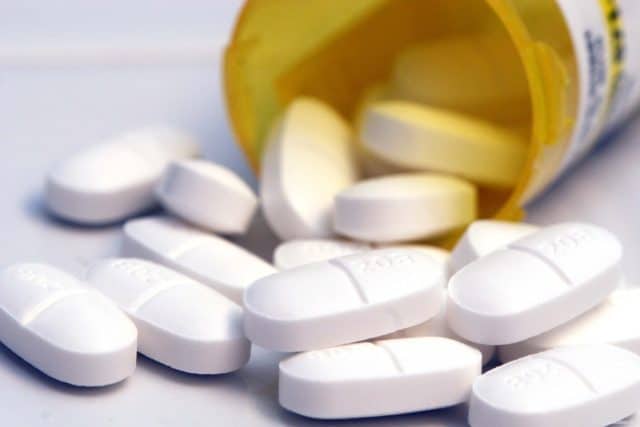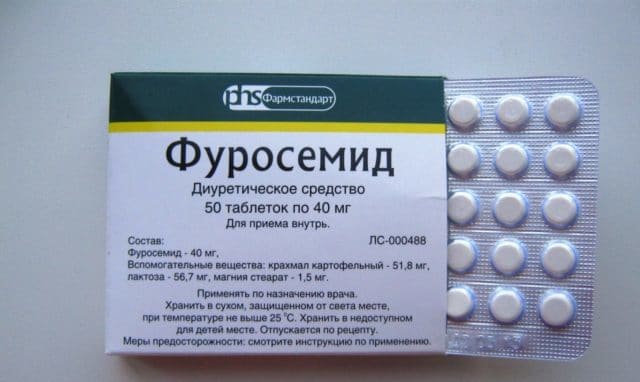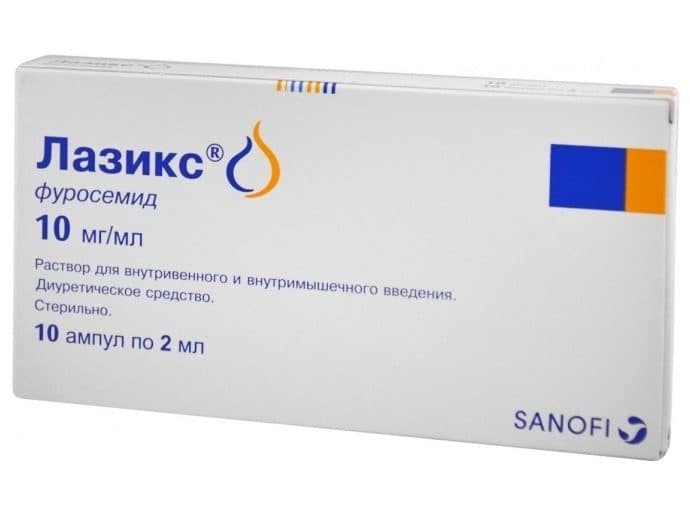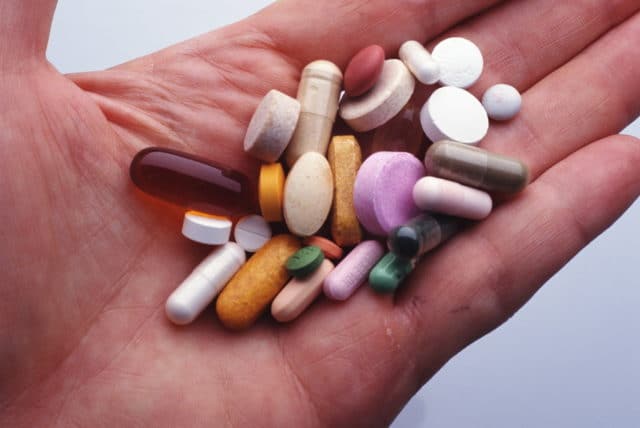Diuretics for pressure
According to various statistics, the adult population under the age of fifty suffers from problems associated with abnormal blood pressure in 35-40% of cases. In older people, this figure doubles. According to the World Health Organization, every third death in the world is “attributable to” cardiovascular diseases, which have become a real scourge of God for modern humanity. Hypertension and hypotension often coexist with severe heart disease. The treatment of these deadly diseases must be dealt with comprehensively and seriously. Pressure diuretics are one of the traditional ways to stabilize blood pressure.
One of the causes of abnormal blood pressure is the accumulation of excess water and sodium in the bloodstream. Diuretics, by stimulating the work of the kidneys, force them to release the body from excess fluid, removing it naturally.
At the moment, there are several groups of drugs that can regulate blood pressure.
This achieves a number of goals:
- decreased intravascular fluid volume;
- the walls of the arteries become insensitive to hormones that narrow their working lumen;
Due to this, the effect of pressure reduction is achieved. You should know that such therapy does not cure the causes of diseases, it is rather symptomatic. However, in some cases, diuretics are prescribed as the main drug. This is especially true in old age, when water retention in the body is due to geriatric changes. Purification is carried out by the kidneys through urine. Pressure diuretics have been widely used in medicine since the fifties of the last century. During this time, many generations of pharmacological agents have changed, which have established themselves as a reliable component in an integrated approach to solving the problems of vascular pathology.
Three whales
In the treatment of cardiovascular diseases, a wide range of diuretics are used, which affect the patient's body in several different ways.

Drugs against hypertension must be taken on an ongoing basis, even if today the readings of the tonometer are within the normal range
In general, all these drugs can be divided into three main groups:
- thiazide;
- loop;
- potassium-sparing.
Thiazide and thiazide-like diuretics for hypertension are prescribed most often. They are quite mild. Tablets based on them act slowly and for a long time. True, the side effects from their use are minimal.
When with the help of drugs of the first type it is not possible to achieve the desired result, then potent drugs are used that stimulate the kidneys to excrete more fluid - loop diuretics. These funds have a number of negative effects, among them is the loss of potassium and magnesium by the body, which are so necessary for the healthy functioning of the heart muscle.
The third type of drugs does not have a pronounced effect, however, they reduce the risk of potassium deficiency. Often they are prescribed in combination with the first two types of drugs in order to reduce the negative effects that diuretics give at high pressure. They are also sometimes used as an adjunct in the treatment of hypotension when there is no need for a powerful dehydrating effect, but therapy is needed to retain beneficial minerals in the body.
Strictly speaking, there is a fourth type of medicine that also reduces the amount of excess fluid. These are aldosterone antagonists. They do not have a diuretic effect, but they block the production of a hormone that helps to retain water in the patient's body.
Don't think of it as a panacea
If you ask ordinary people why diuretics are dangerous at high pressure, then many will find it difficult to answer.

Loop group drugs provoke potassium deficiency, weakness, spasms and arrhythmia
Underestimate the side effects of long-term use of diuretics is not worth it:
- A decrease in potassium levels causes rapid fatigue and general weakness.
- The retention of calcium in the body provokes increased deposition of salts in the joints.
- An increase in blood cholesterol levels increases the risk of diabetes.
- Frequent urination leads to sleep disorders and neuroses on this basis.
- Some types of diuretics lead to impotence and cause gynecomastia in men - breast growth. These drugs are still prescribed in cases where there is no alternative treatment.
A constant uncontrolled passion for chemicals can lead to such consequences when you have to fight not only with the underlying disease, but also with the consequences of taking the medicine.
In addition, there are long-term side effects:
- the body eventually "gets used" to the drugs, which requires an increase in the dose;
- by stimulating the kidneys, diuretics cause them to work in emergency mode, which can lead to kidney failure.
A diuretic for pressure should be used exclusively as prescribed by the attending physician - only he will be able to correctly determine the type of drug you need specifically for you, the optimal dose and duration of administration.
The wealth of choice is impressive
Over its long history of use, means to remove excess moisture from the body have undergone many evolutionary changes - some of them were banned for use, as they caused blindness; part has been modified and spared from a number of negative side effects. The modern market of pharmacological preparations offers a huge selection of diuretics of all types.

Furosemide is a fast-acting diuretic with a pronounced diuretic effect.
Thiazide drugs are presented quite widely:
- "Metalozon";
- "Xipamide";
- "Polythiazide";
- "Chlortalidone".
The choice of loop preparations is also large enough:
- "Torasemide";
- "Furosemide";
- "Lasix";
- "Ethacrynic acid".
Potassium-sparing diuretics are also available in our pharmacies:
- "Triamteren";
- "Amiloride".
Aldosterone antagonists are suggested by the following means:
- "Aldactone";
- "Veroshpiron";
- "Gideon Richter".
Each of these drugs is prescribed based on the severity of hypertension, the presence of concomitant ailments, the need for hard or soft therapy. The doctor will help you choose the most suitable drug after an internal examination. Some potent drugs require follow-up when taking - regular blood and urine tests.

Lasix is a diuretic, diuretic drug
Traditional medicine
Non-pharmacological diuretic agents are used, perhaps even more often than chemical drugs. Traditional medicine recipes abound with useful tips on how to get rid of excess moisture accumulated by the body. Probably, all hypertensive patients know about how watermelons, melons, celery juice and much more work in this disease. Many plants have a healing effect, while grandmother's methods recommend both fruits and berries, as well as leaves and roots.
The list can be very long, the most famous diuretics that reduce blood pressure, no doubt, everyone will name:
- birch leaves;
- herb bearberry;
- cat's mustache;
- lingonberry and strawberry leaves;
- juniper fruits;
- tansy;
- grass shepherd's purse.
Often, herbs and berries have no worse effect, while having fewer contraindications. Old recipes will allow you not to buy diuretic pressure pills at the pharmacy.

Weak diuretics include herbal diuretics, such as rose hips.
- One gram of bear's eye leaves, as the people call bearberry, is brewed like tea. This is a single dose, you need to drink 3-5 servings per day.
- Three teaspoons of wild rose, previously ground in a coffee grinder, are poured with a glass of boiling water and insisted in a thermos for 3-4 hours. A glass of the finished drug is drunk during the day. After ten days, take a break.
- Two grams of lingonberry leaves are brewed for a single dose. Consume four times a day.
- Prepare an infusion of red pine cones and drink it with green tea.
- Squeeze juice from cranberries, add honey to taste. Such a tool, in addition to helping to remove excess fluid, perfectly replenishes the supply of vitamins and conducts antimicrobial therapy.
- Make it a rule to eat raw beets - they also have a diuretic effect.
- Crushed burdock root, in the form of decoctions and infusions, can be recommended to relieve edema and reduce intravascular fluid volume.
It is important to remember that you should not combine the use of traditional medicine and pharmacological preparations - their effect can be summarized. As a result, you will get problematic dehydration of the body, leading to severe weakening. The use of folk recipes for advanced forms of hypertension is best agreed with a specialist.
With all the seeming simplicity of treatment, a diuretic at high pressure should be used, adhering to the simplest rules:

Thus, diuretic tablets and injections can help in the treatment of hypertension, reduce blood pressure.
- it is better to drink drugs in the morning - so you will ensure yourself a more restful sleep;
- regularly monitor blood pressure and monitor the work of the kidneys, for this you may need to consult a doctor and constantly monitor the results of urine and blood tests;
- before using medications, read the instructions for use - you may have contraindications;
- before resorting to traditional medicine recipes, consult with a specialized specialist - outwardly harmless herbs can be fraught with severe side effects that are specific to your particular health condition;
- in the process of using diuretics, significantly reduce the consumption of spicy and salty foods;
- many drugs actively remove potassium from the body, its deficiency must be replenished - vitamin complexes or products containing this mineral in sufficient quantities are suitable;
- do not take alcoholic beverages - they will increase the side effects of drugs;
- the same effect will bring the use of sleeping pills.
To compensate for the reserves of potassium and magnesium lost during such therapy, you can eat foods rich in these minerals: bananas, apricots, raisins.
On the first line of defense
Arterial hypertension is the most common reason for prescribing diuretics. Often they are the main treatment for high blood pressure in the elderly, who are aggravated by the presence of other serious diseases that prevent the normal removal of fluid from the body. Due to the fact that taking such drugs is fraught with a large number of side effects, the appointment of a specific drug, the determination of dosages, the length and frequency of the course of treatment, control over the functioning of the kidneys and the general condition of the body should be carried out exclusively by the attending physician. Sometimes the cause of hypertension is kidney disease. In this case, taking diuretics, you will simply whip a dying horse with a whip, which at the same time pulls a whole body of problems. A diuretic will be used as a whip. Before you pay an exorbitant price for the results of your decision to self-medicate, go through a comprehensive examination and take the drugs indicated in your particular case.




